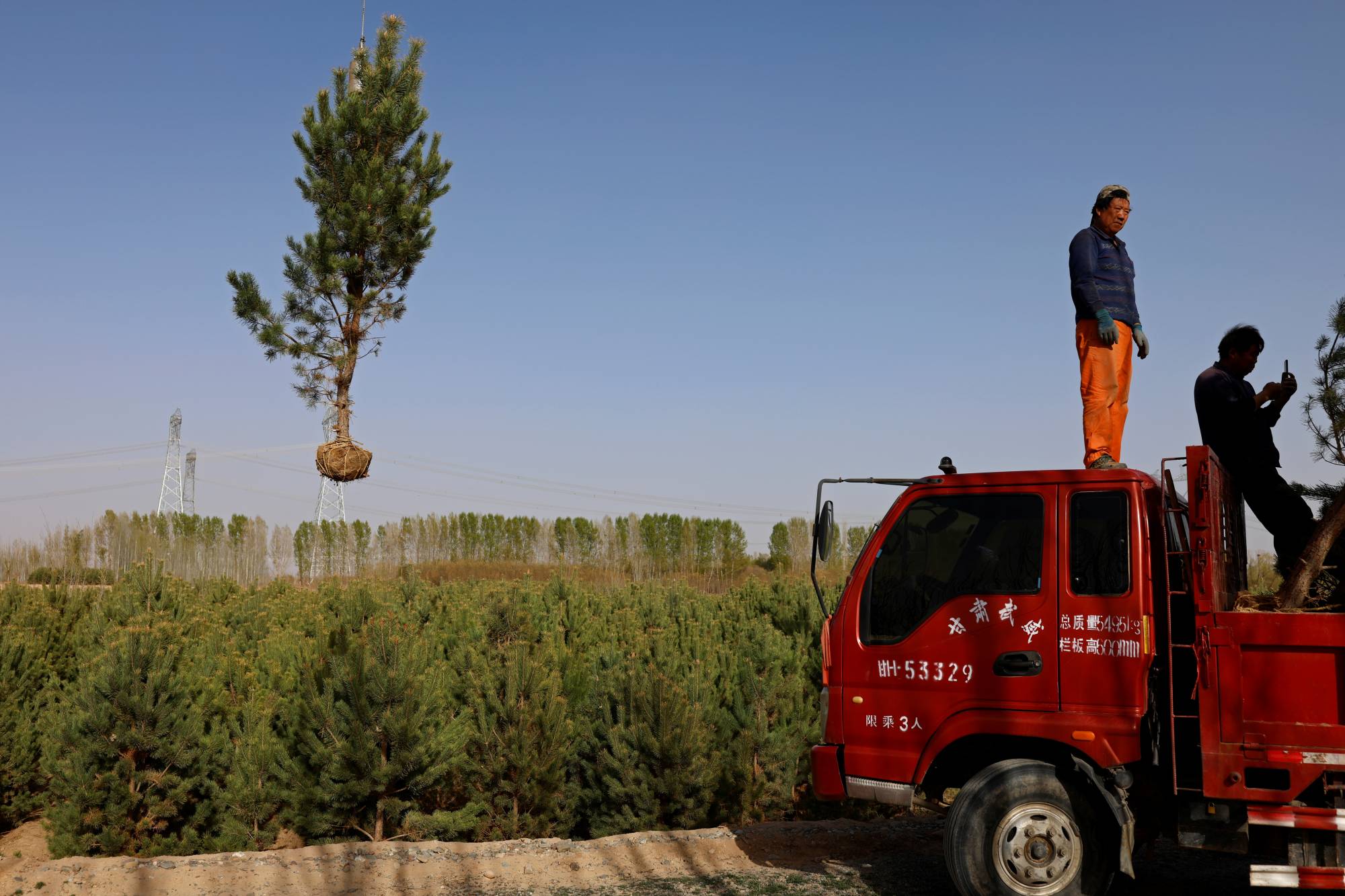After a hard morning planting fresh shoots in the dunes on the edge of the Gobi Desert, 78-year-old farmer Wang Tianchang retrieves a three-stringed lute from his shed, sits down beneath the fiery midday sun, and starts to play.
"If you want to fight the desert, there's no need to be afraid," sings Wang, a veteran of China's decadeslong state campaign to "open up the wilderness," as he strums the instrument, known as the sanxian.
Tree-planting has been at the heart of China's environmental efforts for decades as the country seeks to turn barren deserts and marshes near its borders into farmland and screen the capital Beijing from sands blowing in from the Gobi, a 500,000 square-mile expanse stretching from Mongolia to northwest China, which would coat Tiananmen Square in dust nearly every spring.



















With your current subscription plan you can comment on stories. However, before writing your first comment, please create a display name in the Profile section of your subscriber account page.